 By Pepper Parr
By Pepper Parr
August 16th, 2018
BURLINGTON, ON
Policing is much more than officers handing out Highway Traffic Act tickets.
There is a homicide unit
There is a fraud unit
There is a Mobile Command that the Gazette did a feature story on.
There is a K9 unit
There is a unit that handles sexual assaults.
And there is a Marine Unit that works out of Bronte Harbour in Oakville.
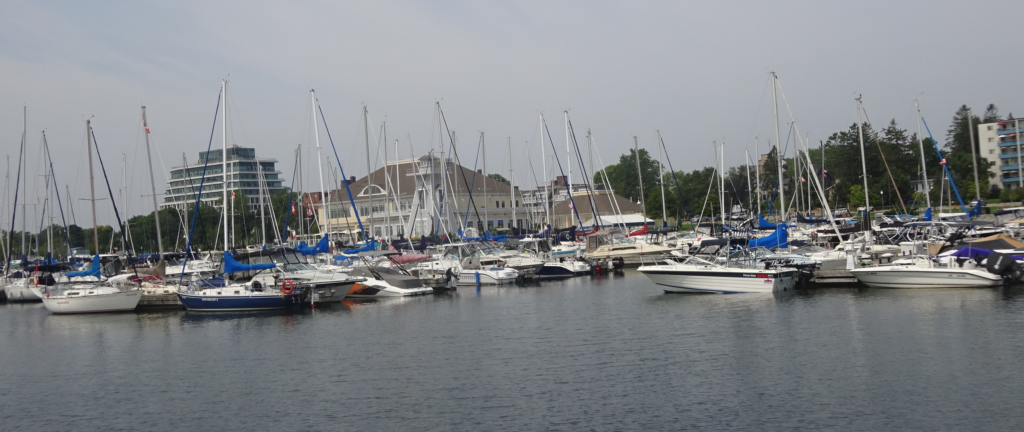
The Outer Harbour at the bottom of Bronte Road in Oakville – HQ for the HRPS Marine Unit.
Their area of jurisdiction is from the border with the Region of Peel, basically at Winston Churchill and out into the Lake up to the International boundary then west to the canal.
The Halton Marine unit works very tightly with the Hamilton marine unit – Halton has the larger of the two fleets.
The Halton boats are run by a team of six people – 5 male and a single female. “Women haven’t sought out the opportunity to serve in the marine unit” said Csanyi.
The Gazette met with Sergeant Paul Csanyi and PC Jeff Thurston at the office they share with a community patrol unit.
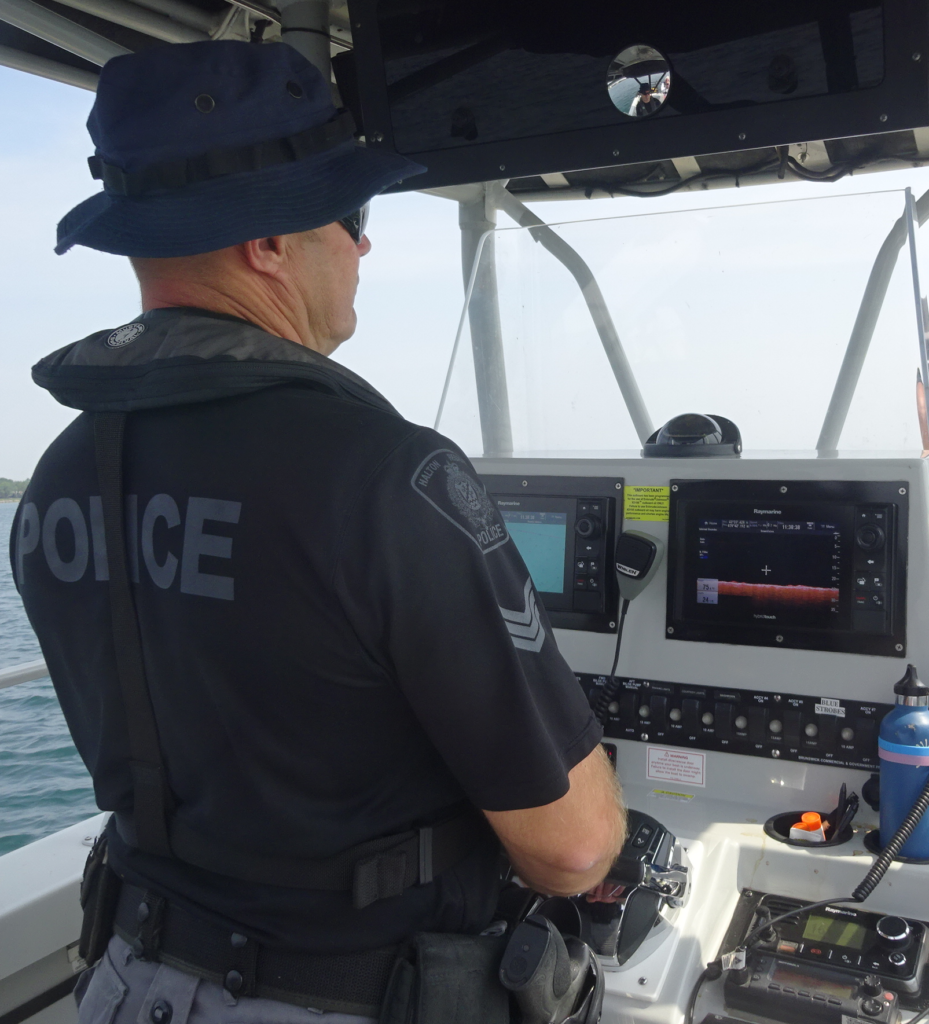
Sgt Paul Csanyi at the helm of Marine 2 – a screen with a depth measurement sits in front of him on the right with a screen that lets him zoom in and out of a map.
Csanyi is an 11 year veteran with the Marine unit and has been a police officer for 28 years. Thurston has been with the unit for five years.
They oversee the operation of a three boat fleet that includes a 40 foot boat, a 26 foot boat and a 17 foot boat. Oddly, the boats don’t have names: just Marine 1, 2 and 3 or as Sgt Csanyi puts it – “the big guy, the fast one and the little guy.”
There is a 4th boat called Marine 4 that is an inflatable dingy which is used for inland waters/ponds)
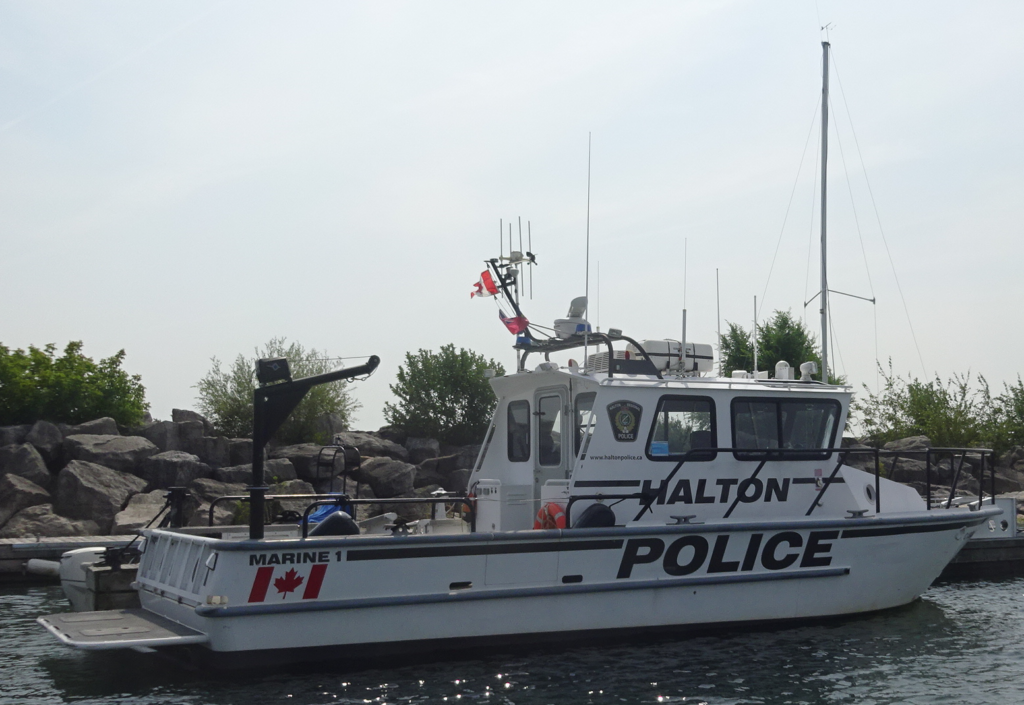
Marine 1 – the biggest boat in the fleet has better handling than Marine 2 the boat this is used most often
The Halton Regional Police Service Marine unit is in place to enforce federal Department of Transport regulations.
“We have an area we are responsible and we do our patrols – we come under the direction of Canadian Coast Guard for Search and Rescue only.
All the regulations that apply to using a boat on the water are federal.”
The two bigger boats have sonar that tells then what is beneath the boat; we were 24 feet above the bottom during our run.
A second screen in front of the person at the wheel is a map of the area they are working that can be expanded and contracted. They have all the technical whistles and bells they need. Radar is also part of what they have to work with.
Marine 2 is very open – not much getting out of the weather on that boat. The command deck is partially enclosed.
The boats are on the water right up until freeze up.
Each boat has life boat of its own that opens automatically when it hits the water.
The work of the Marine Unit amounts to making sure people have the safety gear and that they have a license to use a boat and that the boat is registered.
During our tour Marine 2, the 26 footer, came up on a man on a paddle board who didn’t have a fanny pack. Constable Thurston went forward to explain what the regulations were while Sgt Csanyi took the wheel.
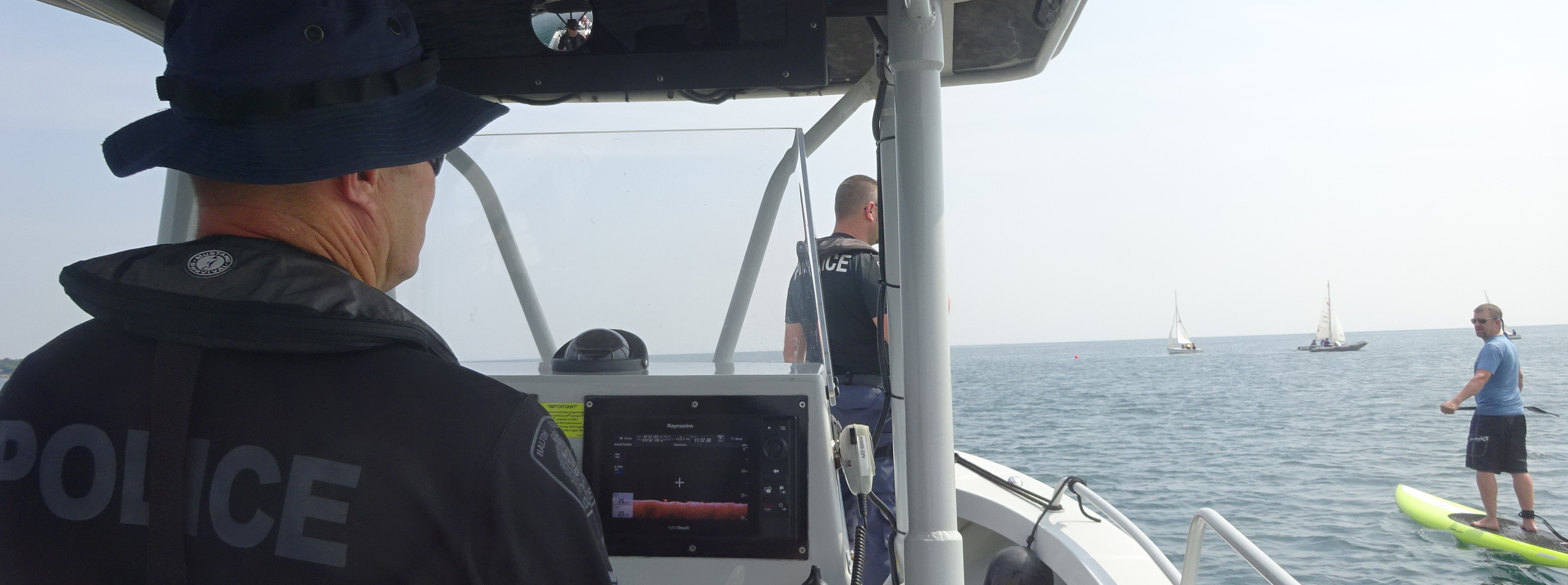
Sgt Csanyi at the wheel while Constable Thurston cautions a paddler who was on the water without all the safety equipment required.
The man was on the water paddling away; his daughter was in Oakville at a hockey school.
No ticket (saved the paddler $125) just an explanation on what the rules were.
The boats have very powerful engines – twin Volvo engines on Marine 1 and dual 250hp Evinrude outboards on Marine 2.
Each boat has a communications system that put them in direct contact with the Halton Communications people who can reach almost anyone anywhere in the world. They are also tied into the communications at the Oakville detachment and they are part of a VHF frequency that the boats use to communicate when they are on the water.
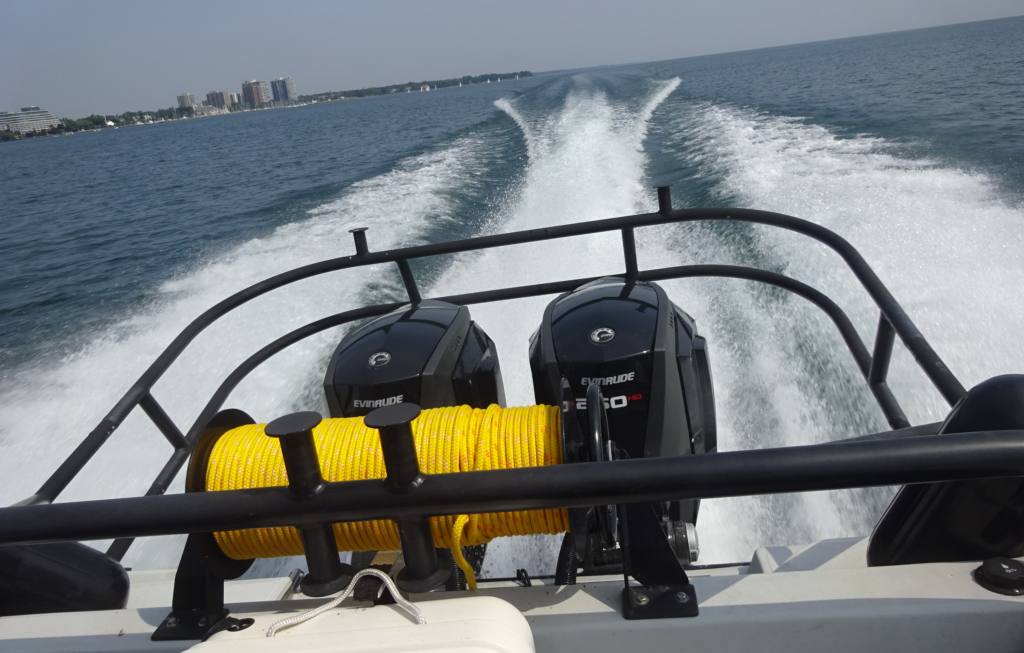
Twin 250 hp Evinrude engines can move Marine 2 at a 40 knots clip – that is fast for travel over water. The white box at the bottom of the picture, partially visible is the life raft for the boat.
And of course they have their cell phones with them.
Whenever a member of the Marine unit boards a boat they have a large bag with everything they need including wet suits if they have to go into the water.
“Should we come across a boat that is on fire our job is to ensure that anyone on the boat is helped. We are not there to put out the fire.”
“There was an occasion when we were involved in helping to raise a boat that had sunk; we were able to suck out some of the water to get the boat up and then get flotation devices underneath so the boat could be taken into a harbour.”
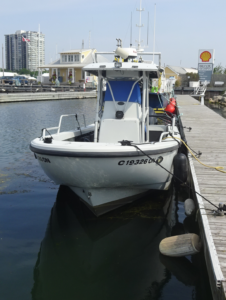
Marine 2 – the work horse of the fleet can be out on the water in minutes should there be an emergency.
The biggest problem for the Marine unit is weather: when the waves get to the six foot level it is heavy boating. Few people know how to handle that kind of weather; it takes an experience boat user to make way in heavy weather.
“A lot of our calls involve racing to aid a boater who is in over their head and are having difficulty handling a boat. We have had to tow boats in the past. We put a line out or we can pull them in alongside our boat and get them back to a harbour” explained Csanyi.
Related news story:
















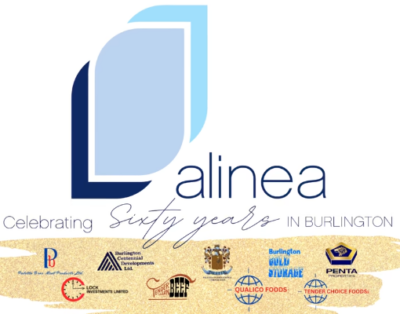

And they do all this without the 4 million dollar building Hamilton wants to build.